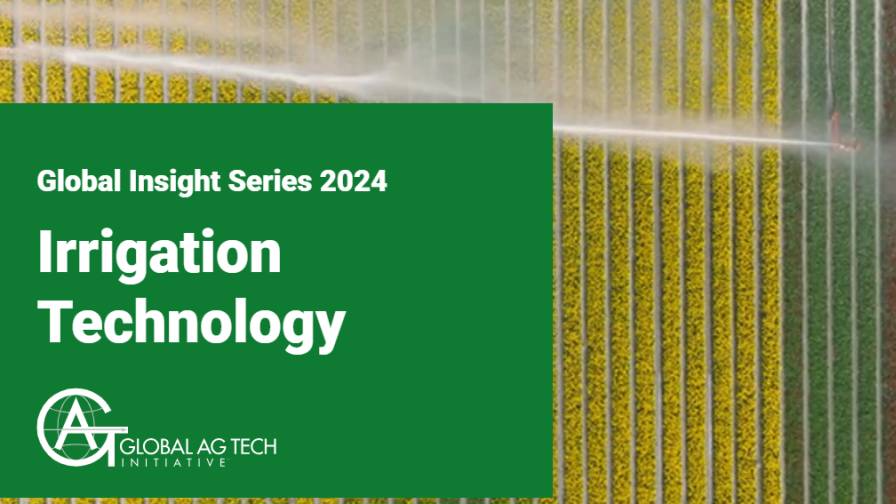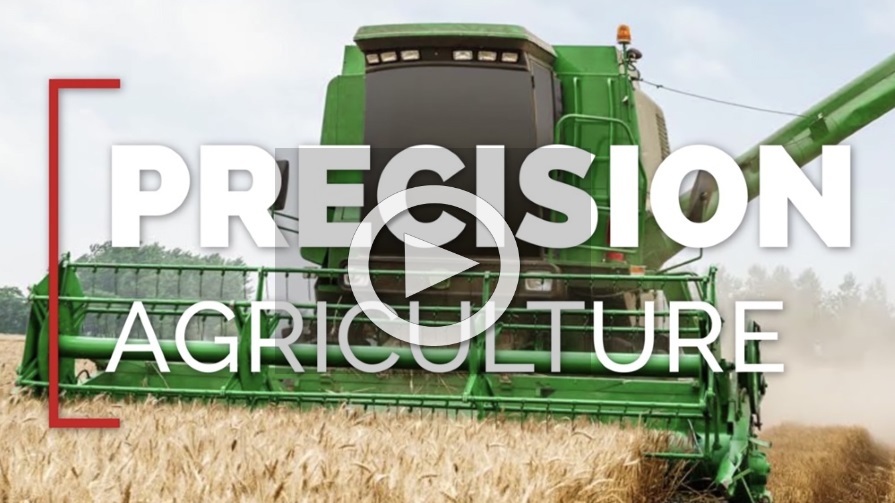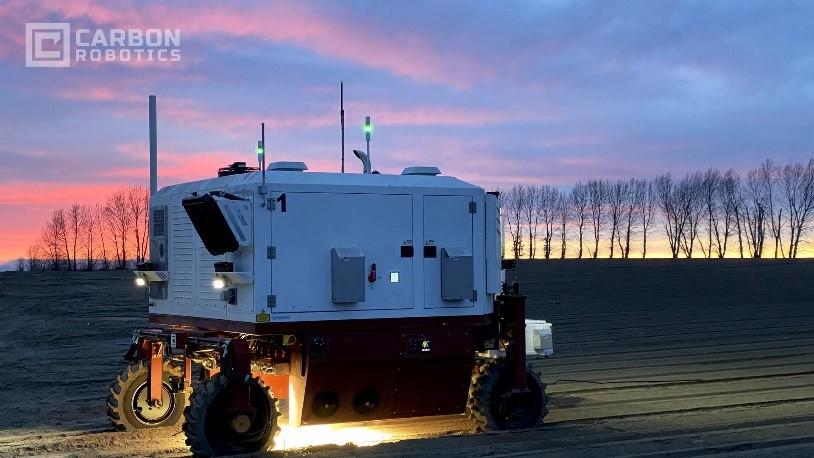Rodney Wright: Better Farming With Precision
 Editor’s Note: The PrecisionAg Awards of Excellence program — sponsored by the PrecisionAg Institute — honored the class of 2018 winners during the InfoAg Conference in St. Louis, MO, in July. This year’s winners include Bruce Erickson, Purdue University (Extension/Research Award); Nishan Majarian, Agrian (Crop Adviser/Entrepreneur Award); Rodney Wright, Wright Farms, Tyronza, AR (Farmer Award); and Newell Kitchen, University of Missouri (Legacy Award). Here is an up close look at Rodney Wright of Wright Farms, Tyronza, AR.
Editor’s Note: The PrecisionAg Awards of Excellence program — sponsored by the PrecisionAg Institute — honored the class of 2018 winners during the InfoAg Conference in St. Louis, MO, in July. This year’s winners include Bruce Erickson, Purdue University (Extension/Research Award); Nishan Majarian, Agrian (Crop Adviser/Entrepreneur Award); Rodney Wright, Wright Farms, Tyronza, AR (Farmer Award); and Newell Kitchen, University of Missouri (Legacy Award). Here is an up close look at Rodney Wright of Wright Farms, Tyronza, AR.

Rodney Wright
Even if you leave it for a while, there’s something about growing up on a farm that’s been in your family for generations, says Rodney Wright of Wright Farms in Tyronza, AR, recipient of the farmer award in the 2018 Awards of Excellence program.
“It just gets you. I went to school and majored in ag engineering. I saw all these things on the farm and thought, ‘Why do they do it like that? We should do it like this to make it better.’ My dream job at one time was to go to school, get an ag engineering degree, and then go to work for John Deere. That last thing never happened.”
Instead, after undergrad and a stretch working for Jacuzzi Brothers and at the University of Arkansas in irrigation research, Wright returned to his home base in Northeast Arkansas in 1993 – to farm ground in the same areas that his grandfather and father farmed. From that point on, he has never stopped improving it and making it the most efficient operation possible.
MORE BY JACKIE PUCCI
Michael Ott: Taking Drone Application from the Drawing Board to the Field
It’s perhaps the reason why precision agriculture has become such a passion for Wright. Precision is a way of conservation – a way of honoring the history of his family farm and ensuring it thrives for years to come.
Precision ag first grabbed Wright’s attention 15 years ago at the Arkansas Crop Management Conference. “This farmer was there, and he was presenting all of these fields with yield maps, and I was like, ‘Man, that’s incredible.’ I had worked in research, so the details were really interesting to me. Yield mapping was probably what really got me on the track, and the guidance systems for tractors is still kind of mind-boggling – how the little receiver on the top of the tractor can talk to those satellites and can steer your tractor in a perfect, straight line. That’s always been kind of neat.”
While he produces a variety of crops, including grain sorghum, cotton, corn, soybeans, and wheat, the huge water management challenge of growing rice is what has captured his interest the most. Wright is currently in his second year using Dr. Chris Henry’s (University of Arkansas) Multiple Inlet Rice Irrigation (MIRI) program, which uses shape files to determine the acreage of the field’s contour levees. Based on the pipe diameter, well flow rate and drop in field grade, it calculates the size of holes to be punched so that the field waters evenly, eliminating the need for spillways.
“If you can imagine, 30 inches is a lot of water you have to put on the field,” Wright says. “With this system, you never lose water at the end of your field. My goal is to never see water running out at the end of this field all year.”
Wright employs a similar irrigation system in his row crops, and is also looking to utilize his yield mapping to create management zones for fertility, seeding, and other crop decisions.
Many have not only taken note of Wright’s dedication and expertise in irrigation, but followed his lead. Just some examples: He was appointed to the Arkansas Agriculture Irrigation Science Technical Working Group in 2016. He was also appointed to the Mississippi County Farm Bureau committee on Research and Extension Resolutions, and served on board of the Mississippi County Conservation District for 10 years until 2014.
“Rodney’s role with the Mississippi County Conservation District formed close connections with USDA National Resources Conservation Service personnel that enhanced his use of precision agricultural technology to simultaneously reduce risk at the farm level and reduce potential runoff of nutrients via over-application and erosion,” says Jennifer Bouldin, professor at Arkansas State University who worked closely with Wright when he was attending the school. His roles with NRCS, Farm Bureau, and academic publishing “has placed him at the focus of decisions being made in Little Rock and Washington, D.C. Once Rodney decides whether a technology is profitable for his farm, his neighboring farmers follow his lead … He is a pillar to the agricultural community of Northeast Arkansas.”
Asked to reflect on the big picture of precision ag and its potential, Wright commented: “Farming has always been a business, but it’s one that took care of itself if the grower took care of his crops. Precision agriculture has changed all that; now a grower has precise information on practically every square foot of his farm. With this new level of intelligence, the grower can analytically and economically take his production to the next level to supply an increasing world population, while being environmentally friendly at the same time.
“I would like to encourage farmers, even if it requires getting help, to utilize yield and other data to manage crop production better and stay abreast of new technological innovations as they come online such as drone capabilities. Drones are getting more user-friendly and can allow for instant feedback on crop conditions.”










